Hollis Lance Liebman – Life Fitness Anatomy
Original price was: $299.00.$66.00Current price is: $66.00.
Salepage link: At HERE. Archive:
Life Fitness Anatomy
$299.00
Have you ever wanted to deeply understand the inner workings of your body… organs, cells and all of the parts that make up your miraculous life experience?
In this in depth, 24hr course being taught in eight 3 hour live classes, Patty Lager will give you a completely new understanding of your anatomy from a living, holistic fitness perspective.
Some highlights of what will be covered:
- A detailed inside view of the detoxing mechanisms of your body.
- A step-by-step flow of how nutrients get digested, absorbed and utilized.
- Everything you need to know about your immune system.
- How all the organs, cells, central nervous system and parts of your body work holistically together.
Life Fitness Anatomy Course Outline
WEEK 01:
Intro to Human A&P/ Homeostasis
• Review of the 11 major organ systems: the major organs of each organ system will be introduced along with the primary functions of each organ system.
• Review of anatomical terms: the language of anatomy will be introduced, including anatomical regions and directional terms.
• Homeostasis and negative feedback: homeostasis is a major theme throughout human anatomy and physiology. Both temperature regulation and blood-glucose regulation will be used as examples of how the body maintains a stable internal environment.
• Positive feedback and childbirth: when positive feedback occurs in the body, it is often associated with dangerous consequences. However, there a re a few healthy examples of positive feedback (like childbirth) that are quite natural.
Chemistry
• Atomic structure: the electrons, neutrons, and protos will be discussed
• Bond formation: examples of ionic and covalent bonding will be discussed
• Chemical reactions (e.g., redox, anabolic, catabolic): to understand digestion, one must understand how chemical bonds are broken (catabolic). To understand how nutrients are used in the body, one must also understand synthesis (anabolic) and REDOX reactions.
• Biological molecules: Carbohydrates, proteins, lipids, and nucleic acids will be explored in detail
• The importance of water will be thoroughly reviewed
WEEK 02:
Cell Anatomy
• Cell structure: A review of the cell membrane (including how nutrients enter/ waste products leave the cell) and all major organelles
• Cellular respiration: An in-depth review of how cells convert food into energy
• Protein synthesis: learn how proteins are synthesized from amino acids inside of the cell
Metabolism
• Roles of various nutrients (glucose, fatty acids) in energy production, as well as a discussion of glycemic index/load
• Review the major vitamins and minerals needed for metabolic activities
• Energy storage (learn the metabolic pathways that result in the conversions of glucose into fats)
• A review of the major hormones that affect metabolic activities, including nutrient storage and breakdown
WEEK 03:
Cardiovascular System
• Learn the anatomy of the heart, including the major heart chambers and valves
• Describe the blood flow through the heart
• Describe how the body regulates heart rate, blood flow, blood pressure to accommodate the changes in bodily function
• Review of capillary exchange: describe how nutrients, oxygen, and carbon dioxide are exchanged between the body’s tissues and the blood
• Learn the diagnostic values of ECGs and Blood Pressure
• Cardiac Cycle: review the major events during one single heartbeat
• A review of blood lab work (important measurements to make note of, and what they mean)
WEEK 04:
Endocrine and Nervous Systems
• Major endocrine glands and their hormones: you will be provided with a chart that will e filled in during this class. This chart will list all the major endocrine glands, their hormones, and the target tissues of these hormones
• Stress response: a review of how both the nervous systems and certain hormones work to prepare the body for a stressful scenario. Also discussed are the dangerous long-term consequences of chronic stress in the body.
• Endocrine disorders: a review of the major endocrine disorders (e.g., diabetes mellitus, pituitary dwarfism, Hashimoto’s disease, etc.…) will be discussed
Autonomic Nervous System & Integumentary System
• Stress response: a discussion of how stress affects digestion, and the consequences of long-term stress on human physiology
• The importance of Inflammation and tissue repair, the consequences of long-term inflammation in the human body
WEEK 05:
Digestive System
• Review of the major functions of the digestive system: Ingestion, digestion, absorption, elimination
• The role of the Liver in detoxification and biological transmutations
• Digestive enzymes and digestive secretions and their role in chemical and mechanical digestion
• The function and importance of the microbiome
WEEK 06:
Respiratory and Lymphatic Systems
• Gas exchange (oxygen and carbon dioxide) across the alveolar membrane
• Acid – base balance in the blood, and how this is related to carbon dioxide levels.
• The role of the lymphatic system in Detoxification of the body
• Review of the major lymphatic organs and tissues (e.g., tonsils, spleen, Peyer’s patches in small intestine, etc.….)
• Defense and Immunity: review of the immune cells (T & B cells), the importance of natural immunity, and the major innate defenses
WEEK 07:
Urinary System / Fluids and Electrolytes
• The role of the kidneys’ in the elimination of wastes from the major bodily fluids
• The role of the kidneys in acid-base balance
• Urinalysis lab work (important measurements to make note of, and what they mean)
WEEK 08:
Reproductive Systems / Pregnancy &Dev.
• A review of Egg and sperm development
• Ovarian and Uterine Cycles in females, and the hormones that regulate these cycles
• A review of the major events that occur during Prenatal development
Muscular and Skeletal Systems
• Review of major muscles and bones in human body
• Calcium homeostasis, and the role of the skeleton
• Muscle contraction, and the importance of calcium (including a review of how calcium imbalances affect muscle function)
• How muscles create ATP, lactic acid, Cori cycle Ch. 6 – 11
Here's an overview of the prominent keywords and a list of famous authors:
Business and Sales: Explore business strategies, sales skills, entrepreneurship, and brand-building from authors like Joe Wicks, Jillian Michaels, and Tony Horton.
Sports and Fitness: Enhance athleticism, improve health and fitness with guidance from experts like Shaun T, Kayla Itsines, and Yoga with Adriene.
Personal Development: Develop communication skills, time management, creative thinking, and enhance self-awareness from authors like Gretchen Rubin, Simon Sinek, and Marie Kondo.
Technology and Coding: Learn about artificial intelligence, data analytics, programming, and blockchain technology from thought leaders like Neil deGrasse Tyson, Amy Cuddy, and Malcolm Gladwell.
Lifestyle and Wellness: Discover courses on holistic health, yoga, and healthy living from authors like Elizabeth Gilbert, Bill Nye, and Tracy Anderson.
Art and Creativity: Explore the world of art, creativity, and painting with guidance from renowned artists like Bob Ross and others.
All the courses on WSOlib are led by top authors and experts in their respective fields. Rest assured that the knowledge and skills you acquire are reliable and highly applicable.
Specification: Hollis Lance Liebman – Life Fitness Anatomy
|
User Reviews
Only logged in customers who have purchased this product may leave a review.

Original price was: $299.00.$66.00Current price is: $66.00.

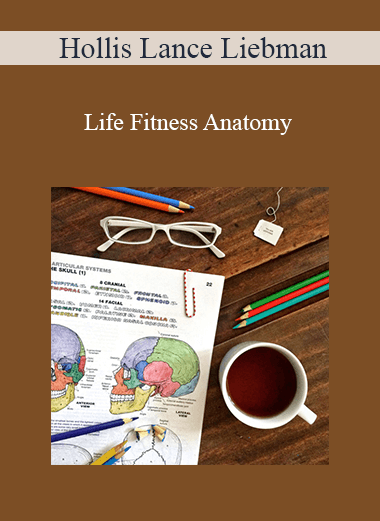






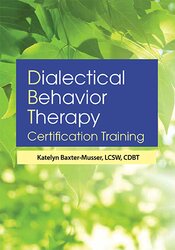
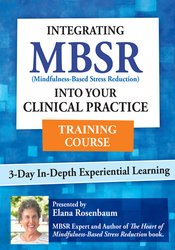

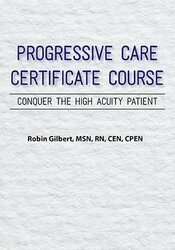
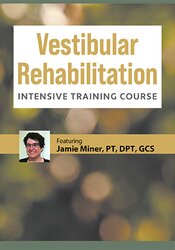
There are no reviews yet.